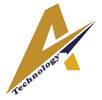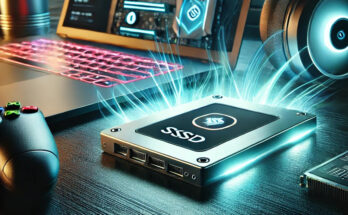How much do you think computers have changed education in the last 10 years? If you’re anything like most people, you probably assume that why Computers are so important in education. you’re not really sure how much they’ve changed things. The truth is that computers have had an enormous impact on education – and if we don’t pay attention to how they’re used, we risk missing out on their full potential.
1) Engagement
Computers are an important part of the modern classroom. They not only provide an avenue for students to learn the many skills they’ll need in our high-tech world, but also encourage creativity and engagement through video games, animations, and presentations. That’s why over 95% of K-12 schools in America use computers as part of their curriculum today.
The five most common uses for computers in education are as follows: teaching reading, math, computer software applications (i.e. word processing), digital communications (via email), and data analysis and manipulation. Here’s a breakdown on how each one can make a difference in the classroom.
Teaching Reading With a Computer – Teaching children to read can be tough. Beyond having them practice reading, you’ll also want to make sure they’re making fast progress. One way to do that is by using technology, such as websites that focus on phonics instruction or allow kids to read along with audio recordings. Programs like these can help students master fundamental reading skills and make quick improvements in reading fluency and comprehension. There are also hundreds of fun games out there for young children that incorporate literacy into their playtime activities. Most important of all, however, is finding age-appropriate content with high quality writing which features an engaging storyline with fully developed characters who have clearly defined goals that are challenged at every turn before achieving their end goal — much like a real book!
2) Collaboration
Computers and education go hand in hand, as evidenced by the heavy use of computers in schools. While some of us still aren’t sold on the idea that computer usage is necessary, it’s worth remembering all the reasons that they are so important. Here are just a few ways that using a computer can make your life easier, or be helpful to your child in school!
1) Research – search engines like Google have made it easy for people to find information about anything. Whether you’re researching world hunger or how many miles there are in a mile, you’ll find what you need online.
2) Communication – communicating with friends or family has never been easier thanks to technology! Skype allows you to see and talk with others while staying at home, while texting is much faster than traditional calling methods (and free!).
3) Designing – if you’re not feeling creative today but need something designed, try Microsoft Paint; if design isn’t your thing but art is, then try Adobe Photoshop for help with any type of image manipulation needs.
3) Independence
Many of today’s industries are expecting their employees to be able to function with minimal supervision, often self-managing themselves in the workplace. Whether you’re an engineer or lawyer, it’s becoming more important to have an understanding of computer use and programs like Microsoft Office. More than that, these computers will give you the independence you need to advance your career without having someone always hovering over your shoulder telling you what to do. As a student, this means you’ll be more independent as well. You won’t need someone at school looking over your shoulder every time you go on a web site for research or check your email for updates from home – if you can handle using a computer independently now, there is no reason why that would change when it comes time to find a job.
4) Digital Citizenship
When it comes to digital citizenship, one of the most important lessons we can teach is how to be a good digital citizen on the internet. One way of doing this is by teaching students how to identify different types of posts online and what they represent (e.g., positive content, violent content, deceptive posts). Students should also learn the appropriate ways to respond in these situations—and what not to do. Giving students opportunities to talk about how they feel when encountering online harassment, cyberbullying, or explicit content can help prepare them for potential exposure and minimize feelings of embarrassment and helplessness if such incidents happen in the future. Lastly, children should also know where to go for help if they are experiencing any type of problems that may involve their virtual interactions.
5) Critical Thinking
1) Learning Is More Engaging – Studies show that when students work on computers, they stay focused on the task at hand longer than if working on paper.
2) Teachers Can Track Progress – If you’re a teacher working with 20 students, it’s going to be difficult to keep track of their progress. With a computer system (i.e., OneNote), you can provide feedback and see the students’ improvements over time.
3) It Improves Critical Thinking Skills – Students using computers think critically about what they’re doing because the technology allows them to explore topics by manipulating different variables without writing anything down.
4) Technology Allows For Exploration Of New Subjects And Ideas – You might not be able to take your biology class outside and study flowers, but with a virtual microscope from an online science lab, you can do just that!
Computers in education have been a hot topic for the past decade or so, and while they’ve raised a lot of concerns, they’ve also helped revolutionize education and make it more hands-on. Here are five reasons why computers are necessary in education:
5) The Internet Brings Knowledge To Your Fingertips – Want to learn about Abraham Lincoln? There’s an app for that!




